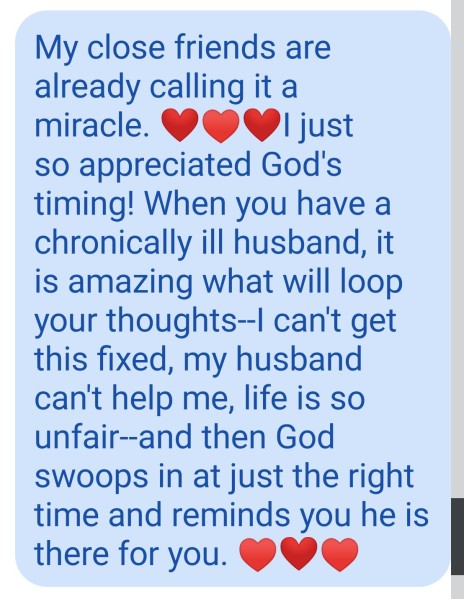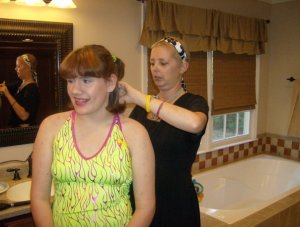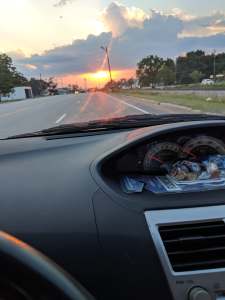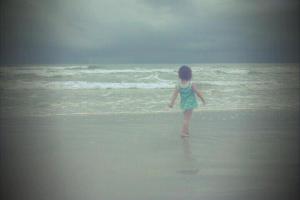
The Tuesday before Thanksgiving, on my last day of being 52 years old, I went to both Kroger and Smallmart– because even before the pandemic supply chain issues, in my small town, neither store ever had everything you needed. (I told shoppers in the dairy section yesterday my new joke: Where is the buttermilk? Not at Kroger!)
In Smallmart (I know–I don’t like the nickname either), there was the usual trouble on the spice aisle.
The spice aisle in the grocery store, particularly near a holiday, is a hullabaloo, a team-building exercise–and, sometimes, a missionary field. People who have never bought sage desperately search for it; those who left their shopping lists at home murmur, “Do I need celery salt or celery seed?” and frantic bakers rifle around for the last vial of McCormick Pure Vanilla.
So, if I encounter someone steering glassy-eyed at the rows of bottles and packets, I always ask, “What are you searching for?” And I stop and help for a minute. (Sometimes, I negotiate: “You find the pink Himalayan salt for me, and I will find the paprika for you.”)
Tuesday, there was a short older woman with a nearly empty shopping cart staring up at the spices. She said she was searching for food coloring, so I joined the quest.
I found it on the top shelf. It wasn’t McCormick–it was disguised in an odd little Great Value box. She said, “I only need one color,” so I grabbed a tall bottle of red, thinking she planned to make red velvet cake for Thanksgiving.
She corrected my assumption: “I need yellow.” I told her there wasn’t a single tall bottle of yellow. She replied, “Well, then, I will need three boxes,” and I handed them to her. (I briefly considered opening them to fill one with just yellow.)
Her shopping companion rounded the corner, and the woman reported that there were no single bottles, so she planned to get three boxes, although she didn’t like the price. “We might have to go to Kroger,” she added.
“Oh, don’t go to Kroger!” I told her.
“Did you just come from there? Is it busy?” she asked.
I told her it was and suggested we look in the cupcake section because sometimes things hide there.
We wandered down the aisle–there was yellow icing but no food coloring. She resigned herself to Kroger.
I opened my wallet and folded a bill the way my grandmother always had. “Here,” I said, explaining, “I had a hard time for a long time.”
She got teary-eyed and started thanking Jesus. And we both stood there in the spice aisle, each of us thanking God.
The words I spoke echoed in my head as I shopped for cat food and eggs and buttermilk. I heard them as I exchanged pleasantries with former students–and again as I loaded my car.
“Had.”
Our family had a traumatic 21 years. Our marriage had a difficult six. I had lost my granddaughter, my father, and my husband–the three of them dying horrible deaths.
“Had.”
I focused on the word as I drove home. Something about having said it struck me–maybe because it was on the eve of my birthday, just before a chronological break, maybe because there might be hope for 53 to be a peaceful year.
“Had.”
That afternoon, my elder daughter dropped by so I could see my two-month-old grandson, The Cutest Baby in the World. We decided to take him to see my aunt, who had yet to meet him. At eighty, she reminds me more of my grandmother every time I see her, and in a small way, it was like introducing the baby to Grandma.
They took to one another–I have photographic proof. The baby lay in my aunt’s lap with placid satisfaction, his eyes the calmest I have ever seen them. He was satisfied to be with her, surrounded by portraits of his great-great-great-grandparents and photos of the great-greats.
Then, my uncle came home (he’d been, of course, at Kroger). He put the groceries down and came to meet the baby, who stood on April’s lap. (The baby loves to stand.)
Uncle B— approached the baby from a distance, like you would a strange scared dog. He stood with his hands on his knees, considering baby P—, calling a gentle, “Hey, there!”
And P— stood staring at back. The baby was transfixed.
It was a long moment. A two-month-old and an 84-year-old, considering one another. From across the room, I took pictures–my uncle’s back, the baby’s intense gaze, April’s smiling face.
And I thought for a moment that it should be my dad hunched over his moccasin-clad great-grandson; that Greg should be in the room, in the armchair beside me; that both of these men deserved to meet and hold this little boy, this bright sunshine after two decades of drenching rain.
And I just left it, grateful for the people in the room, all of us quietly delighting in the sunshine.




 Last Saturday, I went to the mall, and as I was leaving, I bumped into a former student and her mother. They are the kindest of people, and I was wild-eyed and sad–it was just sixteen days from my father’s death by suicide and thirty-six hours before my husband’s second heart surgery in eight weeks. It was just too much, and they could tell.
Last Saturday, I went to the mall, and as I was leaving, I bumped into a former student and her mother. They are the kindest of people, and I was wild-eyed and sad–it was just sixteen days from my father’s death by suicide and thirty-six hours before my husband’s second heart surgery in eight weeks. It was just too much, and they could tell. near-miss, and Greg was back on restrictions–couldn’t lift, couldn’t drive. I lay in bed until 11:00 AM then forced myself to do chores. Our normally tidy house was no longer so–I couldn’t do it all: work, grade, tutor, exercise, cook, and clean. I vacuumed, noting that somehow the antique marble coffee table was in the middle of the rug. I washed sheets and the duvet cover, going outside midway through the drying cycle to ensure that the duvet was not eating the sheets, not wanting to deal with that.
near-miss, and Greg was back on restrictions–couldn’t lift, couldn’t drive. I lay in bed until 11:00 AM then forced myself to do chores. Our normally tidy house was no longer so–I couldn’t do it all: work, grade, tutor, exercise, cook, and clean. I vacuumed, noting that somehow the antique marble coffee table was in the middle of the rug. I washed sheets and the duvet cover, going outside midway through the drying cycle to ensure that the duvet was not eating the sheets, not wanting to deal with that.


 This blog was originally a Facebook note on September 19, 2009. (Today I found myself writing part two, so I thought I would post this, part one, tonight.)
This blog was originally a Facebook note on September 19, 2009. (Today I found myself writing part two, so I thought I would post this, part one, tonight.) the teetotaler and the gal who enjoyed the glass of good merlot, the mother whose kids were bedraggled and barefoot and the mom whose kids wore matching Crocs with their every outfit. I exasperated her with my total cluelessness about the feminine world of makeup and hair: “You send that child over HERE before that dance recital. Don’t you TOUCH her hair.” Steph was my girls’ biggest fan, and the stars in their eyes were certainly those that I expected.
the teetotaler and the gal who enjoyed the glass of good merlot, the mother whose kids were bedraggled and barefoot and the mom whose kids wore matching Crocs with their every outfit. I exasperated her with my total cluelessness about the feminine world of makeup and hair: “You send that child over HERE before that dance recital. Don’t you TOUCH her hair.” Steph was my girls’ biggest fan, and the stars in their eyes were certainly those that I expected. 
 Today, I spent silent hours in the car with Greg–we were going, again, to the doctor. We don’t even pretend anymore; this morning, we didn’t want to be in the car, didn’t want to be spending our day in waiting rooms. We did not buy Chick-fil-a biscuits on the way out of town, didn’t discuss going to the arboretum after the appointments–there was no attempt to make this into a fun trip.
Today, I spent silent hours in the car with Greg–we were going, again, to the doctor. We don’t even pretend anymore; this morning, we didn’t want to be in the car, didn’t want to be spending our day in waiting rooms. We did not buy Chick-fil-a biscuits on the way out of town, didn’t discuss going to the arboretum after the appointments–there was no attempt to make this into a fun trip. There is something that God does for me before a crisis–when I can see the giant, dark waves coming and feel the sand beginning to wash out beneath me. He allows me, always, a brief time with friends. The quickest of rejuvenations–not weeks on a beach, not even lingering dinners–just quick reminders: You also have this.
There is something that God does for me before a crisis–when I can see the giant, dark waves coming and feel the sand beginning to wash out beneath me. He allows me, always, a brief time with friends. The quickest of rejuvenations–not weeks on a beach, not even lingering dinners–just quick reminders: You also have this.



 It is a miracle that anyone escapes–that anyone walks away from their front row seats of sorrow and horror–and so much more of a miracle when it is you.
It is a miracle that anyone escapes–that anyone walks away from their front row seats of sorrow and horror–and so much more of a miracle when it is you. I am just mad. Any blog about this cancer is going to have to start out with a lot of anger and wrath and ranting. As an English teacher, I would like to give some explication, set the background up, tell you little things about the past battles Greg has had with cancer, and kind of give you a general lay of the land. But I can’t, because I am MAD.
I am just mad. Any blog about this cancer is going to have to start out with a lot of anger and wrath and ranting. As an English teacher, I would like to give some explication, set the background up, tell you little things about the past battles Greg has had with cancer, and kind of give you a general lay of the land. But I can’t, because I am MAD.